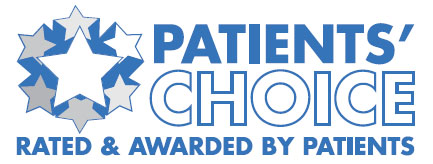Vasectomy is a permanent sterilization surgical procedure. But at some point in the future, life circumstances may change:
• Some couples may simply regret it.
• Some couple may have a much different situations in their health or finance now.
• With a 50% divorce rate in the US, a new partner may have a much stronger desire for children than his ex-partner does.
When this happens, you and your partner will need to look at the options available and decide whether a vasectomy reversal is the best option for you. These options include vasectomy reversal, in vitro fertilization, donor sperms, and adoption.
If you’re considering a vasectomy reversal, you need to know several important factors that affect the success rate.
Years after vasectomy
The single most important factor in whether a vasectomy reversal procedure will be successful is the interval in time (years) between vasectomy and vasectomy reversal. Studies have consistently shown that vasectomy reversal procedures have a higher rate of success when the procedure is performed closer to the date of vasectomy. Theoretically, the sperm recovery rate drops two percent every year after vasectomy. This is because the likelihood of obstruction due to scar formation in the epididymis increases—especially after 7-10 years. Additionally, the anti-sperm antibodies in man’s body may limit or reduce sperm production.
Type of reversal procedure
There are two types of reversal procedures—vasovasostomy (VV) and vasoepididymostomy (VE). The aim of VV is to reconnect the vas where it was severed at the time of vasectomy, whereas during a vasoepididymostomy the surgeon connects the severed end of the vas deferens directly to the epdidymis (the tube attached to the testicle where sperm mature). A VE is more complex and technically demanding than a VV, and it a lower rate of success than vasovasostomy.
Experience matters
The vasectomy reversal procedures are usually conducted by urologists and other surgeons. You need to check surgeons’ credentials. Besides basic medical credentials, the most important questions you need to ask are:
• How many vasectomy reversal does the doctor performs every year?
• How many years has the doctor been performing vasectomy reversal?
• Are the minimal invasive procedure with no scalpel and no needle techniques?
• What are the failure rate and the complication rate?
Cost
Most vasectomy reversal clinics charge expensive facility and anesthesia fees. If you are one of the few for whom vasectomy reversal does not succeed, it will be difficult enough, without a $7000-$10,000 bill!
One Stop Medical Center provides premium reversal services with affordable price by not charging any facility and anesthesia fees.
Reversal tends to be the least expensive choice, but the costs of IVF and other Assistive reproductive technologies (ARTs) could be much higher than that of vasovasostomy, and IVF may require several cycles before conception is achieved and has a lower overall success rate.
ARTs may be a better alternative if vasectomy reversal is not a viable option, or if you don’t want to undergo a second surgery, or your reversal procedure fails.
Age
Although age is not the main factor for considering a vasectomy reversal , but a woman’s fertility begins to decline more sharply after age 35.



